
 |
Photo Gallery: |
|
|
Go to Page Index See also: Photo Gallery: Board Games * Make Your Own Board Game by Laurie Spigel [From Classes and Lectures by Laurie Block Spigel: Research + Writing = Board Game!]Imagine if, at the end of a course of study, instead of facing the dreaded research report or lengthy exam, the test of your skill was whether or not your fellow classmates could play your game? This is actually a course in research, note-taking and writing, but the motivation that fuels the students has to do with the joys of game playing. Each student selects a subject he or she wants to learn more about. Then they are encouraged to do hours of research outside of class (books, periodicals, libraries, internet, interviews, and other locations), as well as research in class, with the aim of making games from what they learn. All materials are provided including blank board game, dice, blank cards, pawns, markers and decorating materials. In the end, each child becomes an expert in their chosen subject and teaches it to the rest of the class. Final class is Game Day, and endless fun!
See also the Photo Gallery, with more photos of Laurie's students' work. | ||||||||||||||||||||||||||||||||||||||||||||||||
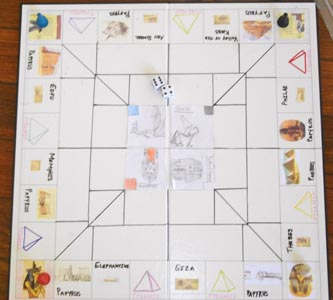 |
See also the Pharoahs Board Game and More about Ancient Egypt |
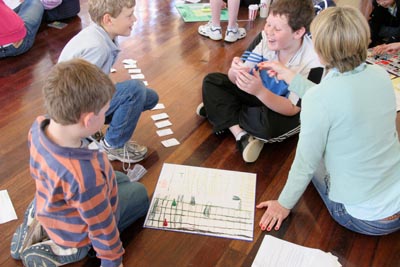 Playing Australia's First Fleet board game |
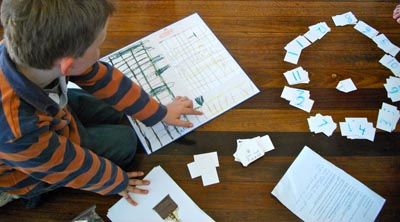 Playing Australia's First Fleet board game More about the First Fleet |
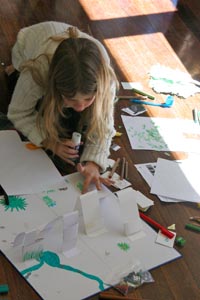 |
Creating the pop-up tropical rainforest board for Baby Monkeys More about tropical rainforests |
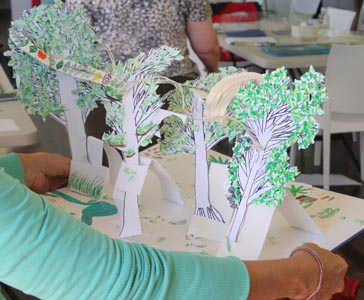 Baby Monkeys – work in progress |
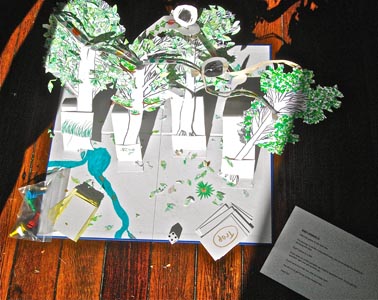 Baby Monkeys |
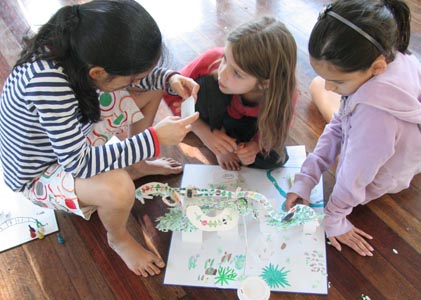 Baby Monkeys board game in play |
|
Bees & Butterflies board game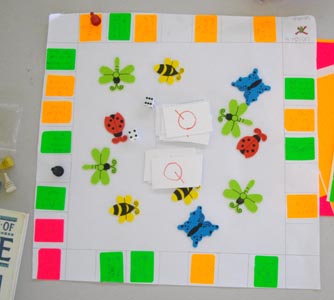 |
See more about Bees and Butterflies |
Dolphin board game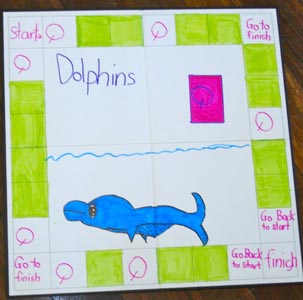 |
See also Dolphins for kids |
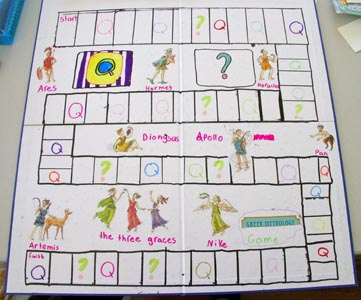 Greek Mythology board game |
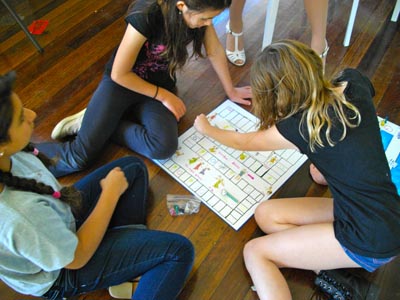 Greek Mythology board game in play |
| See also Labyrinth Board Game and More about Ancient Greece and Greek mythology | |
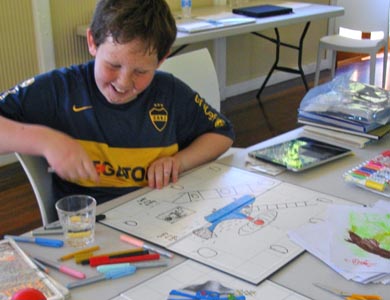 Making the Heliport board game |
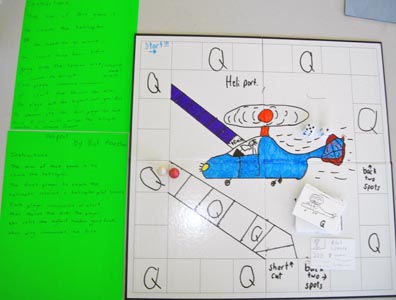 Heliport board game |
| See also How does a helicopter hover? | |
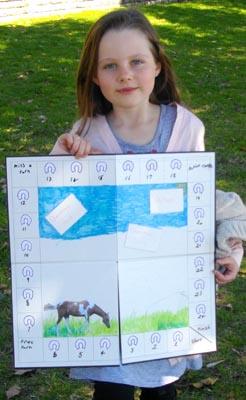 |
See also History of Horses in Australia Horseback Riding in Central Park |
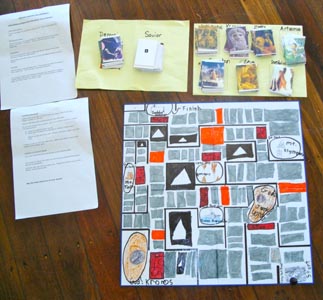 Labyrinth board game |
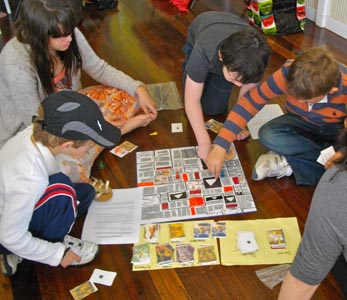 Labyrinth board game in play |
| A labyrinth is a complicated maze. See also Greek Mythology board game and More about Ancient Greece | |
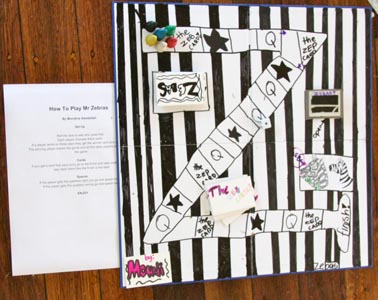 Mr. Zebra board game |
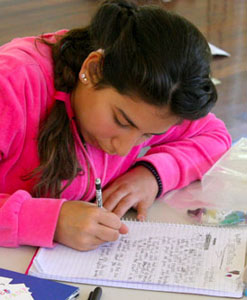 Mr. Zebra board game – writing instructions |
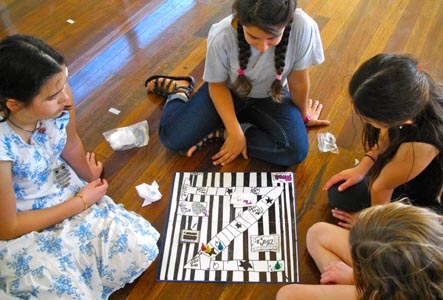 Mr. Zebra board game in play |
See also More about Zebras |
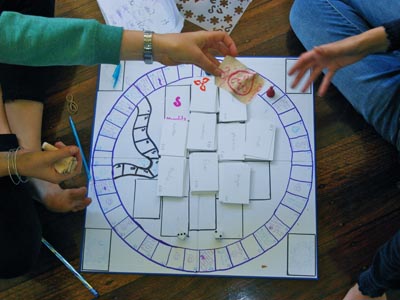 Mythical Creatures board game with handmade money |
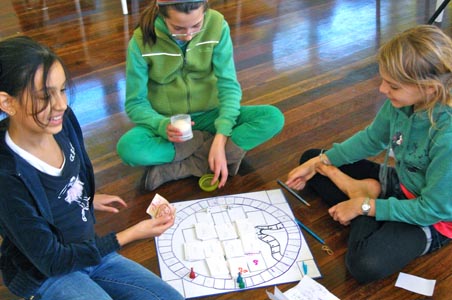 Mythical Creatures board game in play |
| See also List of Legendary Creatures | |
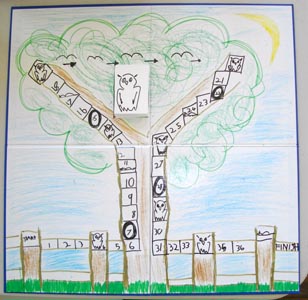 Owls board game |
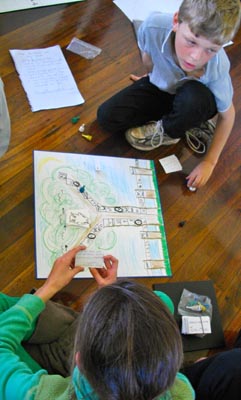 Owls board game in play |
See also All About Owls |
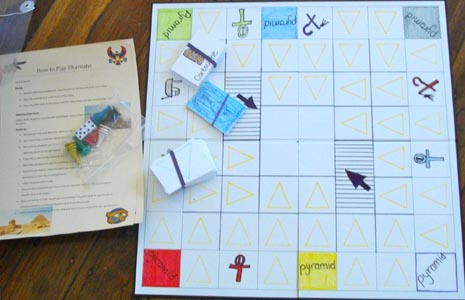 Pharoahs board game |
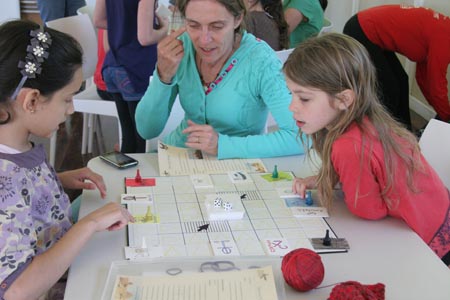 Pharoahs board game in play |
| See also Ancient Egypt board game and More about Ancient Egypt | |
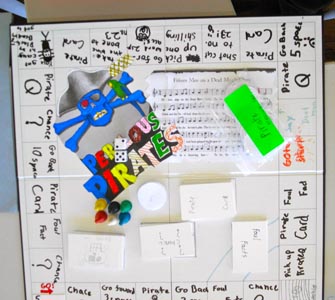 Perilous Pirates board game |
See more information on Pirates |
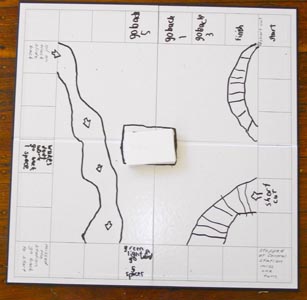 Railroads board game |
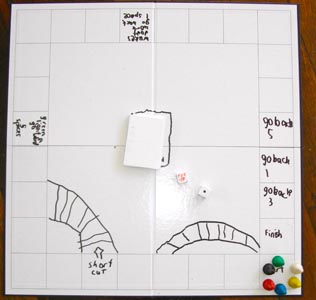 Railroads board game with altered dice |
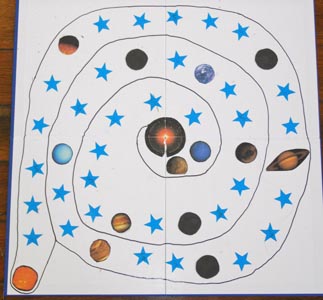 Solar System board game |
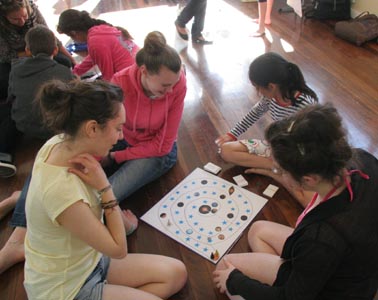 Solar System board game in play |
| See more information on Solar System Exploration | |
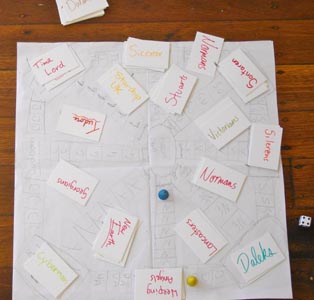 Time Travel through British History board game |
TImeline of British History |
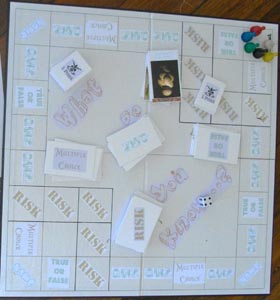 What Do You Know? board game |
Aim of the Game: The aim of the game is to collect the most point cards. Point cards are collected by answering questions. For every question on true or false, quiz, name or multiple choice squares that you answer correctly, you pick up one point card. Fast Play: To play a fast game, the first player to reach 10 or 20 points depending on time limits wins Variations: Alternatively, game can be played until all the point cards run out. When this happens, the person with the most point cards wins. Playing the game: All players pick a colored pawn and place it on the start. The youngest player goes first and play continues clockwise. All players must roll on their turn and move their pawn the number of squares as rolled by the dice. The person to the player's left must pick up a card with the matching name to the square they are on and ask the player the question. If the player gets the question right they receive a point card. Risk: When a player reaches a risk corner, they may choose to take the safe path and continue on the square corner answering normal questions, or they can take a risk and go on the inside corner. If a player chooses to take a risk, then they must pick up the corresponding risk card. These cards may put them ahead in the game by giving extra point cards, or may cause them to fall behind and miss a turn Name tiles: On each corner of the board there is a name tile. The person to the left of the player must pick up a name tile and ask the player the question. If they answer correctly they pick up one point card. Play continues around the board clockwise until there is a winner. |
| Fact Cards | 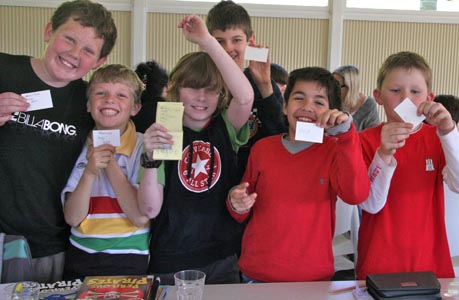 |
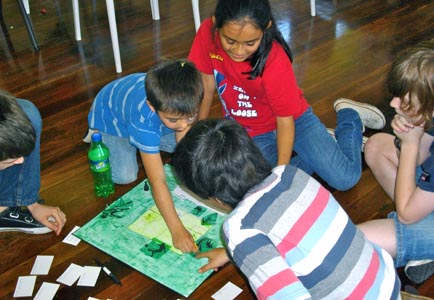 World Cup Soccerboard game |
See also U.S. Youth soccer |
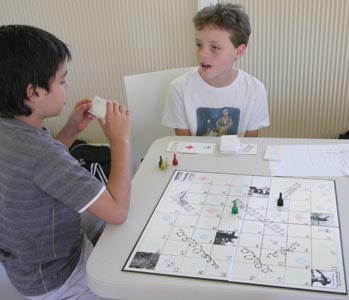 World War I board game |
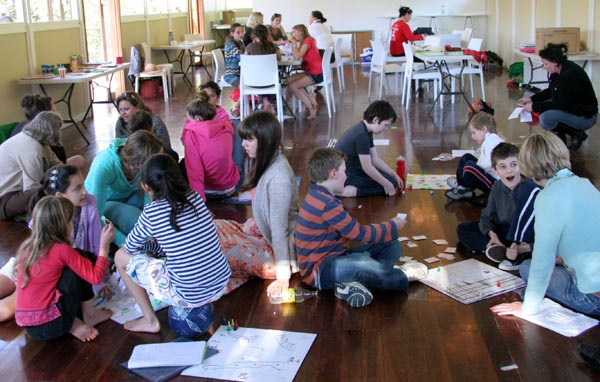
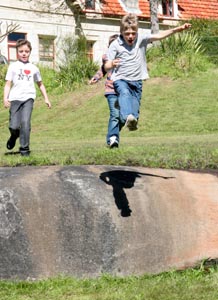 |
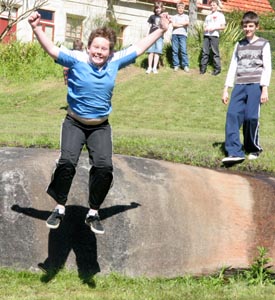 |
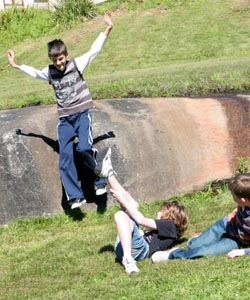 |